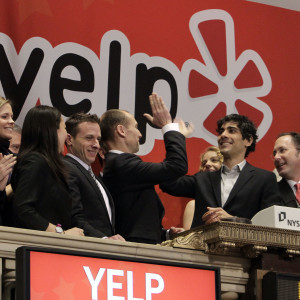Editor’s Note: For an alternative viewpoint, see: Counterpoint: Can Corporations Be Trusted to ‘Do The Right Thing’?
Consumers cannot blindly trust businesses — just recall the proverbial cases of Enron’s fudged books, Big Tobacco’s lies, or, more recently, Volkswagen’s cheating. This does not mean that more regulation is needed, though.
Because of increased access to information, even if businesses are unwilling to hold themselves accountable, their customers are able to do so. This means that regulators do not have to play as large a role in protecting consumers as they did in the past.
In other words, companies cannot be trusted — but their customers can.
The reason for this shift is the Internet’s vast amount of user-generated content. Blogs, social media and customer reviews all allow people to instantly access information about the products or services that they use and easily share their thoughts with others.
Each business transaction has three distinct parts; the buying decision, which is controlled by consumers; the selling decision, which is controlled by businesses; and information about the product or service. In the past this information was controlled, or at least greatly influenced, by businesses. Regulators claimed that they needed more authority to alleviate the effects of this power imbalance. But as the power dynamic continues to shift further in favor of customers, the need for regulations rapidly diminishes.
Yet regulators continue to operate as if services that help consumers, such as Yelp, Google Reviews and Angie’s List, do not exist. Even with the monumental changes brought about by peer-to-peer Internet interaction, there still exists a need for a minimal level of government involvement. But rather than getting rid of outdated regulations to reflect the reality of a 21st-century economy, government continues to add more — mostly in the name of consumer protection.
Five of the six all-time-high page counts of federal regulation have occurred under President Obama’s tenure. The total number of pages of federal regulation, which now exceeds 175,000 pages, contains more than 1 million restrictions on businesses — and this ignores all state and local regulation. Instead of keeping consumers safe, regulators are regulating in search of a problem that consumer empowerment has mostly solved.
For example, when was the last time someone looking for a place to eat went to a government website to see a restaurant’s food safety inspection results? A much more reliable, simple and convenient way to pre-evaluate a restaurant is by going online to see what other diners thought of their experiences.
Regulators often fail to realize that it is an unworkable business model to disappoint, much less harm, customers. With just a few clicks, disappointed customers now have the ability to let potentially anyone in the world who has Internet access hear their thoughts.
Negative feedback can destroy customers’ trust in a business, a result that is much more of a deterrent than a negative report from a regulator. Peer-to-peer online interaction is similar to word-of-mouth reviews — only online interaction can reach many more people than word of mouth ever could. Chipotle is experiencing this effect firsthand as costly fallout from its food-poisoning outbreaks continues, just as Target did when its customers’ personal data were hacked.
Large-scale consumer interaction, sharing and collaboration have created a market that holds companies accountable for their actions. The need to maintain a strong, consumer-friendly brand is stronger than it has ever been. One only needs to look at the benefits and success of the sharing economy, which has fully embraced robust feedback systems.
Sharing economy companies have built their business models around post-service, dual-feedback systems. This means that customers and service providers both have chances to share their experiences by leaving reviews. Through this process, positive behavior is reinforced, and those who fail to meet expectations are identified.
People are careful about which sites and reviews they rely on, and customers have learned which reviews they can trust. A decade ago, who would have thought that someone would willingly enter an unlicensed stranger’s car or stay at a stranger’s home? Yet millions of people across the world are using Uber and Airbnb.
The relationship between consumers and service providers has been transformed for the better. When debating the appropriate level of regulation, policymakers need to keep this new reality in mind. Peer-to-peer interaction and the increased access to information that it provides have improved consumer safety more than regulations ever could have. Regulators need to proceed with caution so that the consumer benefits of this innovation are not stifled.

